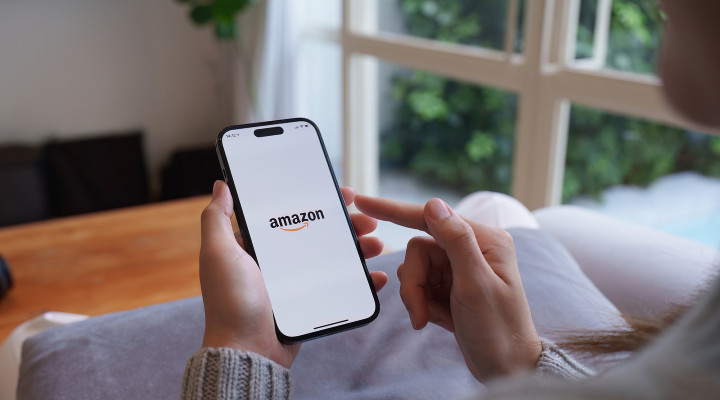A recent survey by Amazon and YouGov showed that online shoppers in Singapore prioritise product quality and authenticity when making purchasing decisions, with 80 per cent willing to pay a higher price for these attributes. Product quality has become more important for online shoppers compared to two years ago, along with product cost, shipping cost, customer reviews, and authenticity. Categories like health and personal care and computers and electronics have a strong emphasis on p
s on product quality and authenticity.
Consumers believe that sellers, distributors, and e-commerce stores share responsibility for ensuring product authenticity, with a desire for more ways to verify authenticity and reliable customer service.
Discounts, promotions, and sales are the top priority for e-commerce shoppers, followed closely by a desire for value-for-money products.
More context
According to Leo Laforgia, Amazon Singapore’s country manager, the company continues to obsess over the things that they believe customers will care about: low prices, vast selection and fast delivery.
“During our annual Prime Day event on 11 and 12 July in Singapore, members enjoyed exclusive access to amazing deals, including up to 70 per cent off on best-selling books, deep discounts of at least 50 per cent off on renowned brands like Bose, Sony, Epitex, and more,” he told Inside Retail.
He went on to say that members can access new releases from Hasbro, featuring popular toy brands like Twister, Monopoly, Transformers, Play-Doh and Nerf, exclusively on Amazon’s Singapore site.
“Our commitment to help customers spend less and smile more extends beyond Prime Day. With Fulfilment by Amazon, sellers can save on their operating costs to pay only for the storage space they use and the orders we fulfil,” he added.
Laforgia said this allows its sellers to tap on economies of scale to make great prices and fast deliveries possible for customers.
Holistic strategies
“This is why we work with and empower brands selling on Amazon through programs like Brand Registry and our anti-counterfeit program Project Zero, to ensure only authentic products are sold in our stores,” he noted.
Amazon’s Brand Protection Report highlights its efforts to protect customers, brands and selling partners.
“We continue to improve our automated protection technologies, which continuously scans numerous data points to detect counterfeit activity, reducing the need for brands to find and report infringements,” he said.
The company also has proactive measures in place to prevent non-compliant products from being listed, and regularly monitors the products sold in its stores for quality assurance.
In addition, its A-to-Z Guarantee protects customers when they purchase items sold and fulfilled by a third-party seller so that customers can shop with confidence.
“Our goal is to create a seamless shopping experience based on the foundations of great value, convenience, and trust,” he stressed.
The big picture
According to Seshan Ramaswami, associate professor of marketing education at Singapore Management University, e-commerce and mobile commerce have both seen their share of the shopping basket increasing for several years in Singapore.
“This is partially reflected in the number of bricks-and-mortar stores who have closed shop in Singapore, in particular the longstanding Robinsons department store chains which converted into a pure online operation recently,” he told Inside Retail.
He said that the pandemic and related lockdowns and movement restrictions were a further blow to physical store operations.
As consumers get used to purchasing online in Singapore, they are also faced with a huge variety of online platforms – there are international players like Amazon, a number of Asia-centric ones like Shopee, Lazada, Qoo10, and Chinese ones like Taobao and AliExpress,” he added.
He said that the recent survey showing that authenticity and quality have become more important indicates that the platform risk has become more salient – no doubt influenced by consumer experience as well as the recent reporting on scams.
“Personal care, food products and electronics are particularly risky products to purchase from an unknown seller, or lesser known platform, as there is physical or substantial financial risk from poor quality,” he noted.
The way forward
Increasingly, as more platforms are able to host a diversity of sellers, he thinks customers will start to put the onus of responsibility for quality on the platform rather than the seller.
“Some platforms also make it easier to make repeat purchases by automating payments, or by being part of a super app (like Grab for example in Singapore), or more attractive by having exclusive partnerships or many periods of special deep discounting periods,” he explained.
Simply offering the lowest price on individual items may not be the best way ahead for e-commerce operators – offering the guarantee of authenticity, quality, protection from fraud, and money-back guarantees may be ways of overcoming small price differences.
“Platforms should improve their efforts to verify the quality of those selling on their platforms. Mystery online shopper studies, perhaps in partnership with chosen customers, could be incentivised to participate in these research studies with discounts and gifts,” he opined.
Ultimately, he feels that local stores should improve their after-sales service, especially in their refund and exchange policies – these could give them an edge over online sellers even with higher prices.

